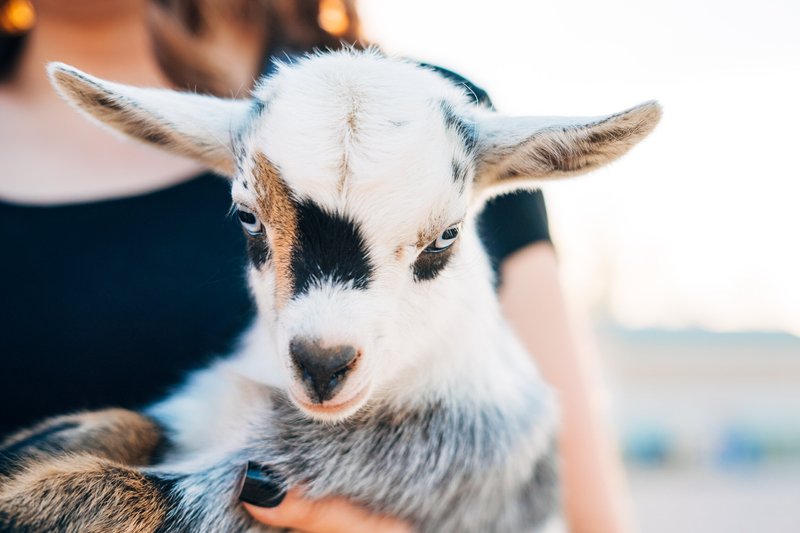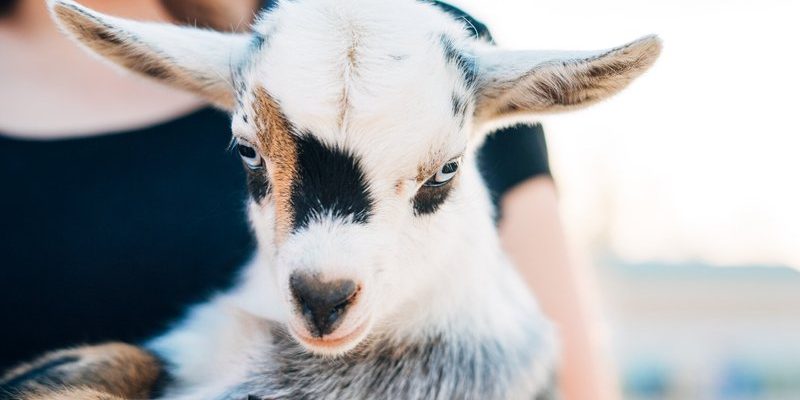
These goats are like the golden retrievers of the farm world—small, friendly, and full of personality. Their playful antics can brighten your day, whether they’re frolicking in the pasture or cuddling up next to you. But are they really the right choice for you? Let’s dive into what makes these goats unique and what you should consider before bringing one home.
What Are Nigerian Dwarf Goats?
Nigerian Dwarf goats are a miniature breed native to West Africa. They have become quite popular in the United States for both their charming looks and friendly demeanor. What sets them apart is their size; they usually stand about 17 to 19 inches tall at the shoulder and weigh between 50 to 75 pounds. These goats come in various colors and patterns, making them visually appealing and fun to have around.
One of the most attractive features of Nigerian Dwarf goats is their milk production. Despite their small size, they’re excellent milk producers, often yielding around a quart of milk daily. And here’s the kicker: their milk has a higher butterfat content than that of larger breeds, making it creamier and perfect for cheese-making. Plus, they’re hardy in different climates, which adds to their appeal as a farm animal.
Benefits of Having Nigerian Dwarf Goats
So, why consider a Nigerian Dwarf goat? Honestly, there are quite a few reasons! Here are some of the most compelling benefits:
- Companionship: They’re incredibly social and bond well with humans and other animals.
- Low Maintenance: Smaller size means they require less space and resources than larger goats.
- Great for Families: Their friendly disposition makes them excellent pets for families, especially with kids.
- Milk Production: As mentioned, they provide nutritious milk that’s rich and creamy.
You might be wondering how they compare to other small livestock. Unlike sheep or rabbits, Nigerian Dwarfs are highly interactive. They love to play, which can lead to lots of laughter and fun moments. Imagine a goat bouncing around, trying to play tag with your kids, or snuggling up beside you on the couch at the end of the day. That’s the spirit of having a Nigerian Dwarf goat!
Considerations Before Bringing One Home
Before you rush to get a Nigerian Dwarf goat, there are a few things to think about. First, they thrive in social environments, meaning you shouldn’t get just one. They can get lonely and may develop behavioral issues if left alone for long periods. Ideally, you should have at least two goats to keep each other company.
You also need to consider housing and fencing. Nigerian Dwarfs are surprisingly agile and can jump surprisingly high for their size. Make sure your fencing is secure and high enough. They’ll also need a cozy shelter to protect them from harsh weather, particularly if you live in areas where it snows or gets extremely hot.
Lastly, think about local zoning laws. Some places have regulations about livestock, even small ones. You’ll want to check if you can have goats where you live before making any decisions.
Feeding and Care Requirements
Caring for Nigerian Dwarf goats involves more than just providing shelter. They need a balanced diet to stay healthy. Their main diet should consist of high-quality hay, pasture, and some grains. However, not all goats are created equal when it comes to eating habits. They’re notorious for trying to eat just about anything, so be mindful of what’s around them.
You might also want to provide additional minerals and vitamins, especially if they’re lactating. Just like us, they need the right nutrients to stay fit and happy. Regular check-ups with a vet will help ensure they’re thriving and free from diseases.
Additionally, grooming is essential. Although they’re small, their coats can get matted if not regularly brushed. Make this a fun bonding experience by making it a part of your daily routine. Your goat will love the attention, and you’ll enjoy the time spent together!
Common Issues and Troubleshooting
Even the friendliest Nigerian Dwarf goat can run into some hiccups. For instance, they can sometimes develop behavioral issues if they feel bored or neglected. Signs to look out for include excessive bleating, chewing on fences, or trying to escape their area.
To prevent this, spend quality time with your goats every day. Providing them with toys, climbing structures, or even a buddy can help keep their spirits high. If they seem particularly anxious or agitated, check their environment for stressors.
Another common issue is health-related, such as parasites. Regular deworming can help keep your goats healthy. Make sure to consult with your vet about a good plan for vaccinations and parasite control, as they can give you personalized advice based on your local area.
Are Nigerian Dwarf Goats the Right Fit for You?
Ultimately, the decision to get a Nigerian Dwarf goat comes down to your lifestyle and preferences. If you have the space, time, and love to give, then these little goats could be a fantastic addition to your life. They offer companionship, joy, and even some delicious milk. Just remember, they’re not just pets—they’re family members that require care and attention.
Think about your goals. Are you looking for a milk source? A playful pet? Or a cute addition to your farm? Whatever your reasons, ensure you’re ready for the commitment. Goat ownership can be incredibly rewarding, but it’s important to be prepared for the responsibilities that come with it.
Nigerian Dwarf goats can be a delightful addition to your farm or home. They bring joy, companionship, and even milk, making them a versatile choice for many people. However, like any pet or livestock, they require care, attention, and a bit of planning.
Take the time to assess your situation, consider local regulations, and be sure you’re ready for what it means to be a goat parent. If you can meet their needs, you’ll likely find that a Nigerian Dwarf goat is not just an animal but a delightful member of your family.

